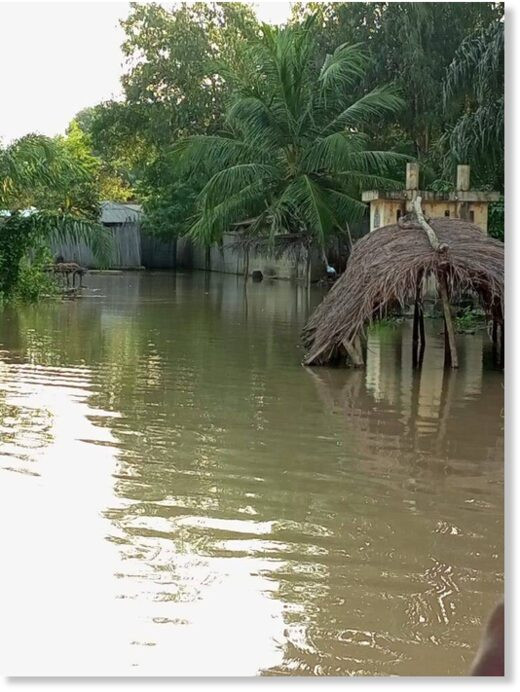Benin Floods: A Devastating Impact on Communities
Intense rainfall in southern Benin has triggered widespread flooding, causing significant damage and displacing thousands of people. The overflow of the Couffo River on June 26, 2024, has impacted communities in six districts of the Couffo department, leaving a trail of devastation in its wake.
The Extent of the Damage
A rapid assessment conducted by the Benin Red Cross and the Lalo council revealed the extent of the disaster. Thirteen villages have been flooded, resulting in the destruction and damage of numerous houses. Over 3,679 individuals have been affected, with nearly 2,482 homes suffering damage. The impact on livelihoods has been equally severe, with an estimated 3,781 hectares of crops lost and 4,196 head of livestock and poultry affected.
The Urgent Need for Humanitarian Assistance
The situation has reached a critical point, requiring immediate humanitarian intervention. The Benin Red Cross, a key player in disaster response, has mobilized 200 volunteers to provide information sessions to the public and empower 20 focal points to monitor and alert on rising water levels. The organization is also supporting communities in relocating to safer areas and providing assistance to schools identified as potential shelters.
The mayor of the commune has launched an urgent appeal to humanitarian organizations for assistance, highlighting the critical need for support in the face of this devastating event. The appeal emphasizes the urgent need for food, water, shelter, and medical supplies to address the immediate needs of the affected population.
A Crisis with Long-Term Consequences
The floods in Benin are not merely a temporary setback but have the potential to trigger a long-term humanitarian crisis. The displacement of thousands of people, the destruction of homes and livelihoods, and the loss of crops and livestock have created a complex web of challenges.
The disruption of food supply chains and potential price hikes could further exacerbate the situation, particularly for vulnerable households already struggling to meet their basic needs. The lack of access to clean water and sanitation facilities increases the risk of disease outbreaks, further compounding the health and hygiene challenges faced by the affected population.
A Call for Global Solidarity
The floods in Benin underscore the urgent need for global solidarity in responding to humanitarian crises. The international community has a responsibility to support the Benin Red Cross and other humanitarian organizations in their efforts to provide relief and recovery assistance to the affected communities. It is crucial to address both the immediate needs and the long-term consequences of this disaster, ensuring that those affected are provided with the support necessary to rebuild their lives.
Looking Towards Recovery
The path to recovery will be long and arduous. The affected communities will require sustained support to rebuild their homes, livelihoods, and communities. A comprehensive approach that addresses the immediate and long-term needs of the population is essential to prevent further suffering and ensure that communities can recover and thrive. The international community must stand in solidarity with Benin and provide the necessary resources to support this recovery effort.

















